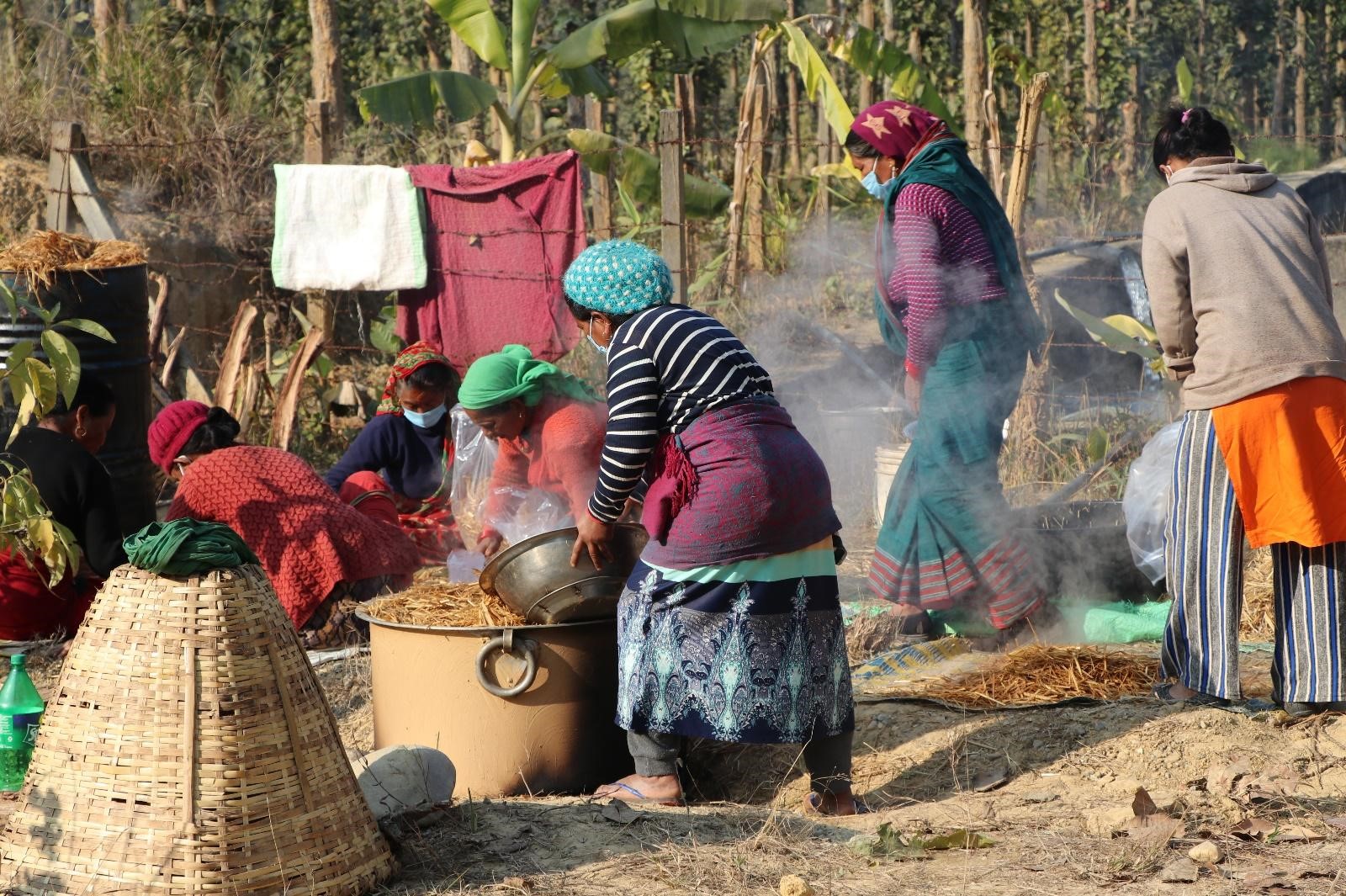
Rainfall and temperature variability are becoming more profound in South Asia. Smallholders relying on rainfed agriculture are particularly affected and have to adapt their farming systems accordingly.
In order to adapt, SAFBIN smallholder are adopting more sustainable adaptation approaches that protect them from the negative impacts while being cost-effective and widely applicable.
In Nepal, mushrooms are popular in local diets, commonly foraged in the forest during the rainy season. Cultivated mushrooms are now also being preferred among the households because of being affordable and nutritious source of fiber, minerals and vitamins. They’re increasingly being adopted by farmers due to their quick return on investment and ability to grow in small spaces.
Farmers in Surkhet district of Nepal, used to do mushroom cultivation on a very small scale a few years back. They have never thought of this as a good alternative for food and nutrition security as well as an income generating source.
Though the farmers had some knowledge about household mushroom cultivation they have never incorporated this as an important component in their farming system. This is because of less technical knowledge and unavailability of spore (seed). They used to consume only wild edible mushrooms in the jungles available during the monsoon season. In order to fulfill this gap, Caritas SAFBIN provided farmers 2 days of practical training in mushroom production and also provided the spores.
After receiving the training, 208 farmers from different locations started mushroom cultivation in their houses individually. After the first attempt, they were very excited to see the production. In an average each farmer produced around 12 kg of mushroom which they consumed in their household, shared with the neighbors and sold the surplus production in the local markets nearby.
After one-two production cycles, they scaled up the production and started to sell the production collectively in the bigger markets and district headquarter. Later they realized that per unit production cost could be reduced by collectivizing the equipment and labor. Thus they decided to combine their resources and go for collective mushroom production on a commercial scale. Currently, three smallholder farmers groups are doing collective mushroom production. SAFBIN has supported seed money of Rs 25,000 (200 Euro) for each of these 3 groups to promote small and medium enterprise on commercial mushroom farming.
At present, each group makes an income of Rs. 30,000-40,000 (200 – 350 Euro) per season from the investment of NRS 8000- 10000 (60-80 Euro). It is expected that the group will take forward this in a bigger scale as an enterprise even after SAFBIN project phases out.
Mushroom practice can easily be adopted by small-scale farmers to help them diversify incomes, especially when climate variabilities may challenge conventional farming, and reduce their vulnerability to adverse weather.